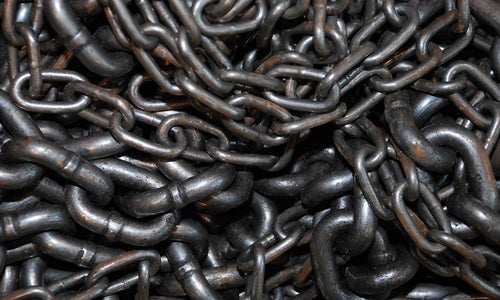 "FKA-RacecaR" (FKA-RacecaR)
"FKA-RacecaR" (FKA-RacecaR)
10/02/2014 at 13:59 • Filed to: None
 0
0
 14
14
 "FKA-RacecaR" (FKA-RacecaR)
"FKA-RacecaR" (FKA-RacecaR)
10/02/2014 at 13:59 • Filed to: None |  0 0
|  14 14 |

Apparently our 2009 Toyota Sienna has a timing chain, and not a timing belt like I thought.
 Mattbob
> FKA-RacecaR
Mattbob
> FKA-RacecaR
10/02/2014 at 14:04 |
|
like finding $1000 in your pocket if you are up around 100000 miles.
 dinobot666
> FKA-RacecaR
dinobot666
> FKA-RacecaR
10/02/2014 at 14:04 |
|
3.5 V6? It's a pretty nice engine. About the only thing I've seen go wrong with them is water pumps seem to go faster than their recommended service intervals suggest. Other than that, like with any minivan with a lot of heat soak in the engine bay, your transmission is going to get pretty warm quite often, so have its fluids changed as Toyota recommends.
 FKA-RacecaR
> Mattbob
FKA-RacecaR
> Mattbob
10/02/2014 at 14:07 |
|
$1,000? No way that is how much it costs?!? I've never paid to have one done. We are getting close to 100k miles on the Sienna and were looking into paying to have it done. That is when I was told we have a timing chain, and not a timing belt.
 multiple wheels for each day of the week
> FKA-RacecaR
multiple wheels for each day of the week
> FKA-RacecaR
10/02/2014 at 14:13 |
|
this is the reason I bought the highlander and the FoST no more belts for me ever
 Mattbob
> FKA-RacecaR
Mattbob
> FKA-RacecaR
10/02/2014 at 14:15 |
|
I think it's closer to $600. But it's nothing to sneeze at. (I've never had anything with a belt, this is just from things I have heard.)
 Arben72
> FKA-RacecaR
Arben72
> FKA-RacecaR
10/02/2014 at 14:16 |
|
About that much. They're a pain in the ass on some cars.
 FKA-RacecaR
> Mattbob
FKA-RacecaR
> Mattbob
10/02/2014 at 14:17 |
|
Ugh, glad to hear it's a chain then. I was way off on my guess. May have to make that a prerequisite on any future cars I buy.
 FKA-RacecaR
> Arben72
FKA-RacecaR
> Arben72
10/02/2014 at 14:18 |
|
Yeah, I know it's a pain in the ass. That's why I wanted to pay someone else to do it on the mini van. LOL
 Mattbob
> FKA-RacecaR
Mattbob
> FKA-RacecaR
10/02/2014 at 14:20 |
|
definitely a good thing to look for. They are also less likely to break and leave you with a severely damaged engine. If your timing belt breaks, in most modern engines, the valves will meet the piston, and bad things happen.
 GhostZ
> Mattbob
GhostZ
> Mattbob
10/02/2014 at 14:53 |
|
Not only that, but you don't suffer timing losses as the belt starts to get weak leading up to that point either, or have to worry about keeping the tensioners set right.
 Mattbob
> GhostZ
Mattbob
> GhostZ
10/02/2014 at 15:08 |
|
so you are saying there is no warning with a timing belt. Even if you need to replace a chain, the chains aren't that expensive. And you don't really need to set tensioners, just make sure they aren't broken.
 GhostZ
> Mattbob
GhostZ
> Mattbob
10/02/2014 at 15:17 |
|
Eh, not that there is no warning with a belt, more that even if a belt doesn't "need" to be replaced, it does affect your performance if it hasn't been replaced in a long time. More so on older cars where the belt has had some time to expand or get more rigid from sitting for a long time.
But seriously, I have no idea why every engine isn't a timing chain non-interference engine with mechanical fuel injection. We would save so much money in just engine longevity and cheaper repairs if things were done that way for most cars. I don't care about the extra .5mpg or 10HP you gain from having an interference engine. I imagine the average engine life could be expanded up to 300000-350,000 miles if those changes were made, since the next limiting factor would be the gaskets, turbos if they have them, or exhaust, I would think. I don't know much about what engine parts fail first, but isn't the reason the Mercedes straight six in the W123 was so reliable because of that configuration? Same thing with the Nissan L engine and Ford 300.
 Mattbob
> GhostZ
Mattbob
> GhostZ
10/02/2014 at 15:20 |
|
cant you get better compression with an interference design?
 GhostZ
> Mattbob
GhostZ
> Mattbob
10/02/2014 at 15:29 |
|
Yes, but like I said, I don't think it's worth the extra efficiency for the heightened repair cost and the potential to grenade your engine.
Notched or dished pistons though can let you get higher compression without interference, but most engines can still reach 10:1 or 11:1 without having to do that, depending on the bore diameter and the head size. More valves per cylinder and wider bores mean you can get more compression for the same intake volume before you start to interfere. (as a higher bore increases C/R, and more valves allows for smaller valves for the same intake).